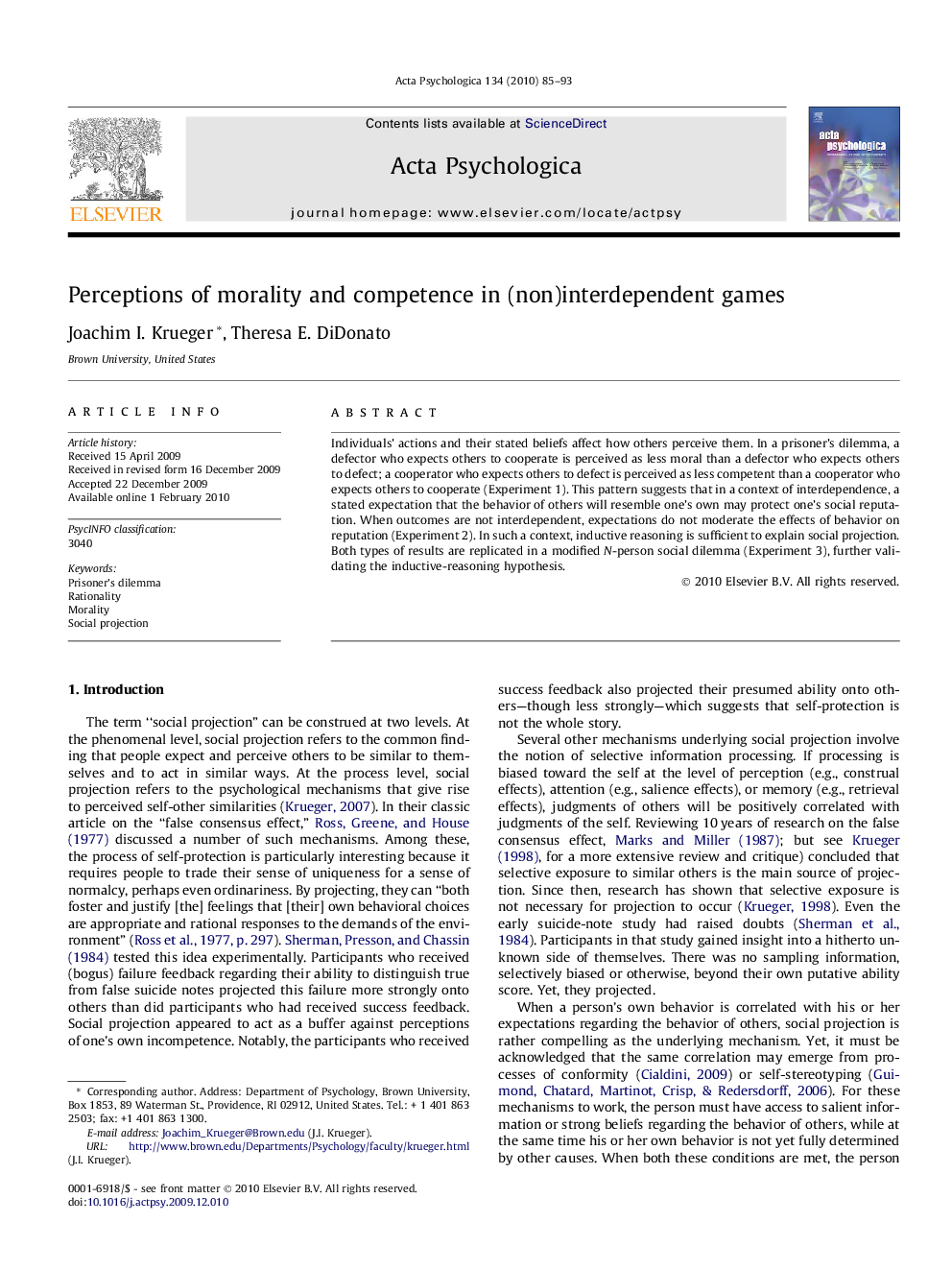| Article ID | Journal | Published Year | Pages | File Type |
|---|---|---|---|---|
| 920327 | Acta Psychologica | 2010 | 9 Pages |
Individuals’ actions and their stated beliefs affect how others perceive them. In a prisoner’s dilemma, a defector who expects others to cooperate is perceived as less moral than a defector who expects others to defect; a cooperator who expects others to defect is perceived as less competent than a cooperator who expects others to cooperate (Experiment 1). This pattern suggests that in a context of interdependence, a stated expectation that the behavior of others will resemble one’s own may protect one’s social reputation. When outcomes are not interdependent, expectations do not moderate the effects of behavior on reputation (Experiment 2). In such a context, inductive reasoning is sufficient to explain social projection. Both types of results are replicated in a modified N-person social dilemma (Experiment 3), further validating the inductive-reasoning hypothesis.
